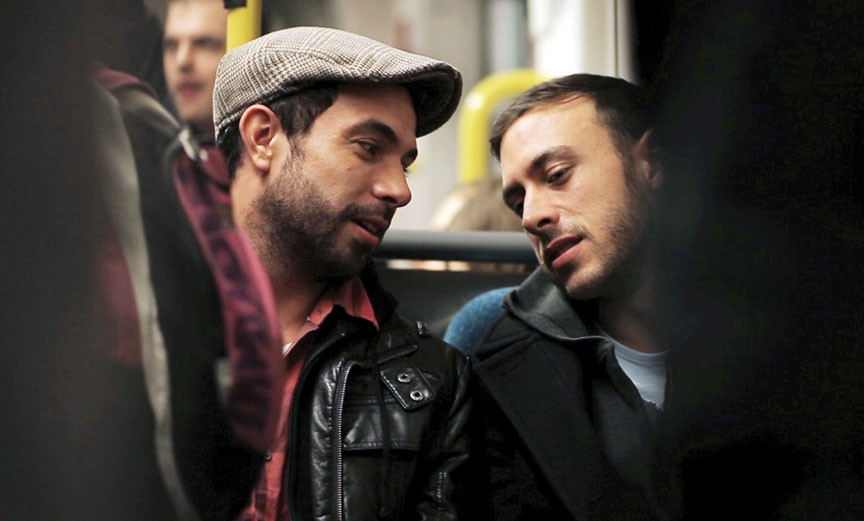Directed by: Andrew Haigh
Starring: Tom Cullen, Chris New
Rated: NR
Showing: Oct. 21, Lagoon Cinema, 2906 Hennepin Ave., Minneapolis
âÄúWeekendâÄù is a romance movie that is not rooted in drama or comedy; itâÄôs not entirely giddy or solemn. It does not involve boom boxes outside of bedroom windows or overbearingly passionate kisses in the rain.
Instead, it is a patient and discerning British film about two young men who sleep together in what was supposed to be a one-night stand and the feelings âÄî in their manifold forms âÄî that unfold between them. They meet each other, of course, just two days before one moves out of the country for a years-long sojourn.
With a narrative that spans just over two days, director Andrew Haigh is able to take one of the most boring subjects imaginable âÄî everyday life âÄî and weave a simple story that is emotionally evocative without falling into formula.
The film follows the mild-mannered Russell (Tom Cullen) and his drunken encounter with the witty and frenetic Glen (Chris New) after a night out. Semi-closeted Russell is clearly jarred the morning after, but Glen âÄî as throughouttheir exchanges in the film âÄî pushes Russell into candid conversation about sex, relationships and the joys and challenges of being gay.
Haigh coaxes astonishingly natural performances out of Cullen and New. The moments between Russell and Glen as they get to know one another with hesitantly scribed text messages and nervous giggles, though mundane, are instantly recognizable because of their simplicity, and thus emotionally resonant.
Both men are undeniably endearing. CullenâÄôs crinkly-eyed smile punctuates RussellâÄôs mellow sorrows with a subtle sweetness. Glen is chatty, brash and opinionated, but diminutive and boyish next to Cullen. The dialogue in âÄúWeekendâÄù is not concerned with peppering the film with witticisms or show-stopping character revelations. Instead, it leaves room for body language to do the talking.
The honesty in this approach makes âÄúWeekendâÄù a sophisticated and sensitive film âÄî qualities that are only emphasized further by its astute visual presentation.
The distinct and delicately crafted camera work divides its attention between intimate close-ups and a distant, observational perspective of the young men as they navigate private and public spaces.
At one point, the camera slowly moves along RussellâÄôs nude body in the bathtub as he sleepily washes himself. At another it is set back. One scene places the eye of the audience behind anonymous subway passengers who obscure our view of Russell and Glen.
There are shots through windows, from across the room or between the gaps in a wire fence. The audience cannot always hear what is said or see what the characters are looking at.
It is an effect that is not so much voyeuristic as a format that gives the relationship room to breathe, while also revealing HaighâÄôs talent for building interest through clever direction and stylistic flourishes. He parcels out what we need to hear, while letting us imagine what we want to be said.
The title of the film gives a hint as to the length of its narrative arc, but even with full awareness of its brevity, itâÄôs difficult âÄî if not impossible âÄî to not get invested in âÄúWeekend.âÄù Like the overnight relationship between Russell and Glen, the film feels all too brief.
4 out of 4 stars








